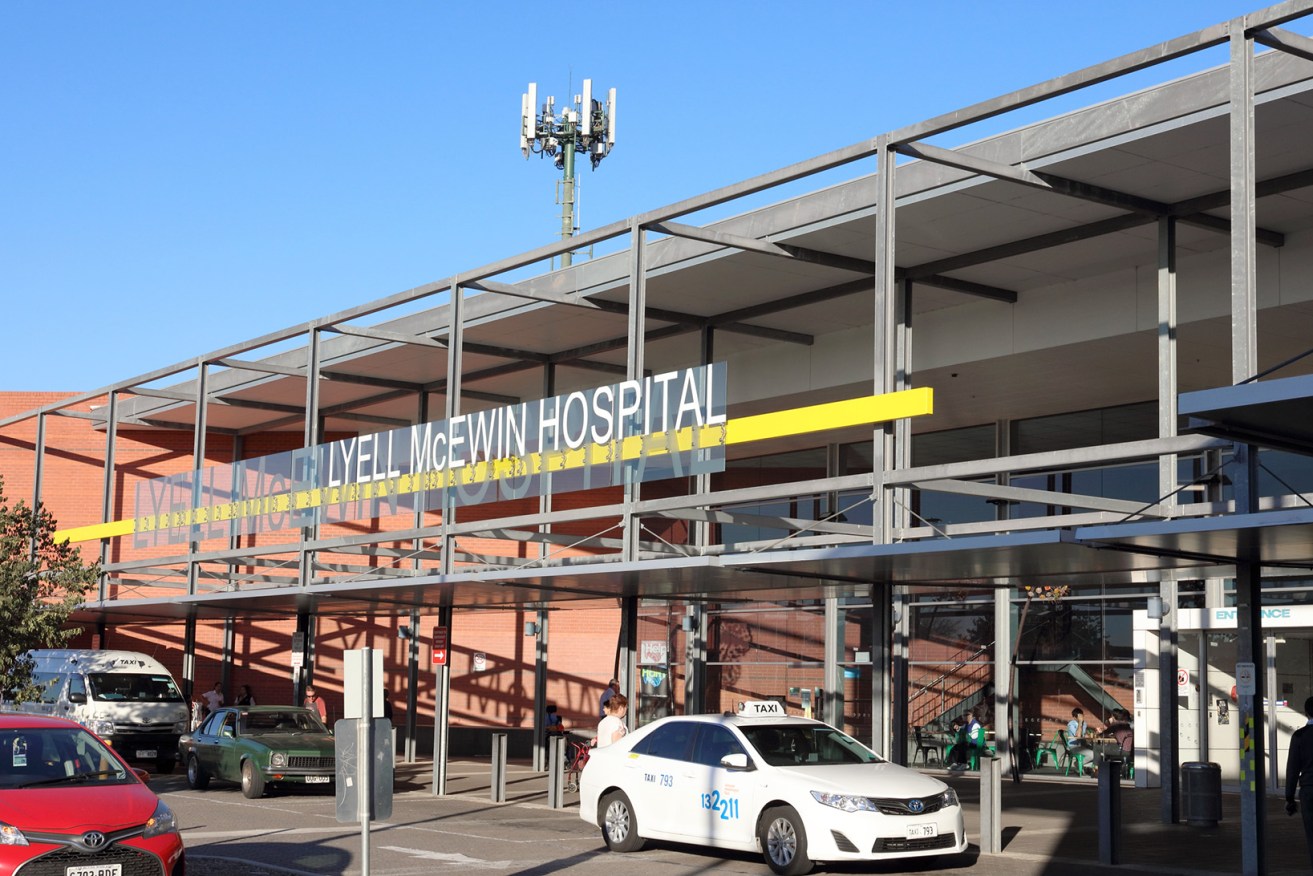Lyell McEwin swaps hard shackles for soft after Chief Psychiatrist criticism
The Lyell McEwin Hospital has replaced “hard” shackles with “soft” to restrain patients in line with new standards and following findings by the Chief Psychiatrist of “under-reporting” of the controversial practice.


Photo: Tony Lewis / InDaily
But a doctor at the hospital says inadequate reporting will continue because staff shortages leave medicos too busy to do all the required paperwork.
SA Health says the Lyell McEwin Hospital has overhauled its use of restraints and incident reporting in response to concerns raised by Chief Psychiatrist Dr John Brayley.
Brayley revealed to InDaily late last year that he had concerns about the use of restraints at a second South Australian hospital, following problems identified and subsequently addressed at the Royal Adelaide, but at that time he declined to name the hospital or specify what his concerns were.
Brayley has now confirmed the second hospital in question is the Lyell McEwin, where he discovered a lack of reporting of the use of restraints during two inspections of the hospital’s emergency department in August and September last year.
“Under-reporting of restraint in clinical incident reporting was identified, however improvement work has been underway at the LMH to improve recording, and the effect of this is being monitored,” Brayley said in a statement.
He also said the inspections identified the use of a “hard restraint device” in the hospital, “which is now no longer approved in a new Chief Psychiatrist Standard, which was released in February 2021”.
“Hospitals can no longer use these restraints from 1 May 2021, and it is anticipated that approval will be sought for the use of a ‘soft’ restraint device before that date,” Brayley said.
The Chief Psychiatrist added that his inspection team “noted the commitment of staff to deliver quality care, and significant strengths in the close working relationships between mental health and ED staff who were co-located in the ED”.
A spokesperson for the Northern Adelaide Local Health Network said based on Brayley’s inspection recommendations, the Lyell McEwin Hospital had recently replaced its restraint devices with an “approved version” by the Office of the Chief Psychiatrist “and all non-approved hard restraint devices have been removed”.
“We are committed to working with the Office of the Chief Psychiatrist (OCP) to improve the culture of clinical incident reporting associated with restraint use in the ED, and are monitoring the compliance of incident reports being recorded,” the spokesperson said.
But Dr David Pope, who works in the hospital’s emergency department and is also president of the SA Salaried Medical Officers Association, said under-reporting of shackle use would continue because of staff shortages.
“The reporting systems are clunky to use, very time-consuming and the Emergency Department is understaffed so finding the time to do that without compromising the care of other patients is impossible,” he said.
“What do you prioritise? Do you prioritise doing that reporting or do you prioritise the cases arriving by ambulance?”
Pope said the hospital needed more resources to improve its reporting procedures.
“We need adequate staff – both medical and nursing – to meet the needs of the patients that present,” he said.
“There’s many things we can’t do to whatever standard is set because there’s simply not enough time.
“So we have to prioritise and we tend to prioritise non-paperwork type things because at the end of the day that’s what makes a difference to the patients, at that particular moment anyway.”
He supported the move from hard to soft shackles “so long as they’re safe for both patients and staff”.
The Royal Australian and New Zealand College of Psychiatrists SA branch chairperson, Dr Paul Furst, said while the reporting of the use of restraints was important, “we need to look at a system that minimises the circumstances that lead to this type of activity” in the first place.
“Measuring the activity is important but we need to fix the system that creates these kind of episodes,” he said.
“Clearly restraint and seclusion of any person is undesirable and should only occur as a last resort to protect the safety of that person or other people.
“So we fully support efforts to eliminate and reduce restraint and seclusion.”
Furst said the use of shackles and restraints was “indicative of a system that is not flowing properly, that is not working properly”.
“One of the things that we know is that many episodes of restraint and seclusion occur when a person is not being looked after in the right setting, so particularly (in) emergency departments,” he said.
“If they’re stuck in an emergency department for more than a couple of hours we know that the risk of an episode of restraint or seclusion will increase significantly.
“If people can come into emergency departments, they’re quickly seen, and either returned to the community if appropriate or admitted to a proper ward where they can get expert mental health care in the right setting, then the risk that they will require shackling or restraint or any of those sort of restrictive practices is much lower.”
Pope said while shackling should be reduced it was unrealistic to think it could be eliminated altogether.
“When people’s brains aren’t working for whatever reason – whether that be medical problems or alcohol, other drugs, trauma – when your brain’s not working you’re combative and you’re a danger to yourself and others,” he said.




